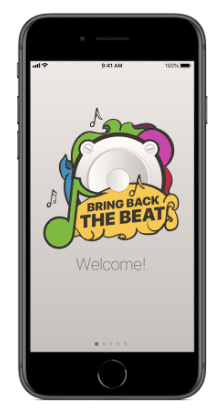Did you know that music training can help cochlear implant recipients in their music perception?
Research published this year shows online music training helps cochlear implant recipients to hear some of the most difficult tasks in music perception: pitch discrimination and timbre identification.1
Cochlear implant recipients find it difficult to perceive pitch and timbre and their ability to perceive complex stimuli, such as music, varies widely.2
So, in what the authors describe as ‘the most rigorous and carefully controlled music training study to date in CI users’, 20 CI recipients and 21 people with normal hearing were assigned to one of two arms: one month of online self-paced music training followed by one month of audio book listening as a control, or one month of audio book listening followed by one month of music training. The aim was to assess the impact of an online, short music training intervention on pitch and timbre perception in CI users.
What is interesting about this study is that the intervention was a commercially available, online, self-paced music training program. Users started at the beginner level and progressed through their choice of musical exercises covering a range of musical features, such as melodic patterns, pitch direction, pitch identification, density (harmonics), rhythm, and arpeggios.
What were the results of music training?
 They found that both listening to audio books and conducting online music training improved pitch and timbre perception in both hearing and CI groups, but music training was superior to audio books in terms of timbre identification.3
They found that both listening to audio books and conducting online music training improved pitch and timbre perception in both hearing and CI groups, but music training was superior to audio books in terms of timbre identification.3
The authors suggested that these benefits were due to a combination of training-induced stimulus learning and also procedural learning.4
They concluded: ‘These findings demonstrate a potential role for music training in perceptual auditory appraisal of complex stimuli.’5
The authors noted that online resources for auditory rehabilitation remain an untapped potential resource for cochlear implant users and suggested that ‘establishing immediate value from an acute music training program may encourage cochlear implant users to adhere to post-implantation rehabilitation exercises’.6
Previous research has also confirmed that music training can improve music perception and appreciation for those with CIs.7
Meanwhile, Cochlear has developed an interactive music training app called Bring Back the Beat, with a variety of music exercises and levels of difficulty, which is designed to assist cochlear implant recipients to reconnect with music.
To find out more, download the app for free from the Apple App Store8 or Google Play9.
- Jiam N, Deroche M, Jiradejvong J, Limb CJ (2019). A randomized controlled crossover study of the impact of online music training on pitch and timbre perception in Cochlear implant users. JARO. DOI: 10.1007/s10162-018-00704-0.
- Jiam N, Deroche M, Jiradejvong J, Limb CJ (2019). A randomized controlled crossover study of the impact of online music training on pitch and timbre perception in Cochlear implant users. JARO. DOI: 10.1007/s10162-018-00704-0.
- Jiam N, Deroche M, Jiradejvong J, Limb CJ (2019). A randomized controlled crossover study of the impact of online music training on pitch and timbre perception in Cochlear implant users. JARO. DOI: 10.1007/s10162-018-00704-0.
- Jiam N, Deroche M, Jiradejvong J, Limb CJ (2019). A randomized controlled crossover study of the impact of online music training on pitch and timbre perception in Cochlear implant users. JARO. DOI: 10.1007/s10162-018-00704-0.
- Jiam N, Deroche M, Jiradejvong J, Limb CJ (2019). A randomized controlled crossover study of the impact of online music training on pitch and timbre perception in Cochlear implant users. JARO. DOI: 10.1007/s10162-018-00704-0.
- Jiam N, Deroche M, Jiradejvong J, Limb CJ (2019). A randomized controlled crossover study of the impact of online music training on pitch and timbre perception in Cochlear implant users. JARO. DOI: 10.1007/s10162-018-00704-0.
- Looi V, Gfeller K, Driscoll V (2012). Music appreciation and training for Cochlear implant recipients: a review. Semin Hear, Nov 1, 33(4), pp. 307–334.
- App Store is a service mark of Apple Inc., registered in the U.S. and other countries.
- Google Play and the Google Play logo are trademarks of Google LLC.